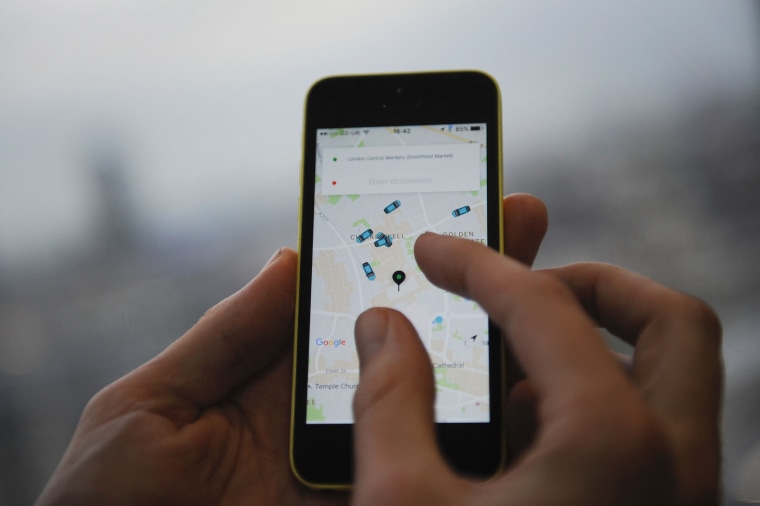Can’t seem to hail an Uber, or a Lyft? If you’re African American, the findings of a new study point to racial profiling.
African American passengers using ride-sharing services are more likely to face cancellations and higher wait times, according to a study published Monday.
After conducting more than 1,400 case studies in Seattle and Boston, researchers with the Massachusetts Institute of Technology concluded ride-sharing drivers are more likely to discriminate against passengers with “African American sounding names” compared to riders who appear white.
“The patterns of discrimination were quite clear and consistent in both cities – and one can only assume it's happening all across the country in other markets," said Christopher Knittel, one of the study’s co-authors.
Though the study stresses that the racial profiling observed is a result of the choices made by individual drivers and not Uber or Lyft policy, Knittel called the results of the study “quite concerning.”
In Seattle, researchers found black passengers could experience up to a 28 percent increase in wait times for both Uber and Lyft. In Boston, a separate study found black passengers were more than two times as likely to have an UberX ride canceled. Cancellation rates for Uber passengers also disproportionally affected black men, who were three times as likely to have their rides terminated compared to white males.
In Boston, Uber’s internal data shows that 96 percent of UberX trips start within 20 minutes of a ride being requested, regardless of the neighborhood.
Related: Uber Facing Lawsuit in Chicago for Violating Wheelchair Laws
Researchers struggled to find statistically significant evidence of race playing a role in cancellations for Lyft passengers, but they conclude this is because the app allows drivers to see names and photos of potential passengers before accepting a ride — allowing them to self-select riders in private.
The study’s findings seemed to contradict previous research that shows how ride-sharing services have been able to fill a much-needed transportation gap in low-income neighborhoods.
In July, a Pew survey found that more than 50 percent of minorities said ride-sharing services serve neighborhoods that taxis refuse to visit.
Officials with both Uber and Lyft fought back against the study’s findings Monday, citing previous research that shows ride-sharing services are more likely to serve low-income communities than taxi services.
Related: Will Detroit Survive the Self-Driving Transportation Revolution
Adrian Durbin, a Lyft spokesman, said the organization is proud of the positive impact it has on minorities of color.
“Because of Lyft, people living in under-served areas - which taxis have historically neglected - are now able to access convenient, affordable rides,” Durbin said in a statement.
Rachel Holt, head of North American operations for Uber, said the app is designed to provide transportation services to passengers no matter where they live.
“Discrimination has no place in society, and no place on Uber,” she said in a statement.
“We believe Uber is helping reduce transportation inequities across the board, but studies like this one are helpful in thinking about how we can do even more.”
